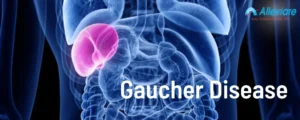Breast Cancer: Understanding the Signs, Types, and Treatment Options.
Signs of Breast Cancer
The signs of breast cancer can vary from person to person. Some common signs and symptoms include:
1. A lump or thickening in the breast or armpit
2. Changes in the size, shape, or appearance of the breast
3. Nipple discharge or inversion
4. Redness, scaling, or dimpling of the skin on the breast
5. Pain in the breast or nipple
It is important to note that not all lumps in the breast are cancerous, and not all breast cancers cause lumps. However, any changes in the breast should be reported to a healthcare professional as soon as possible.
Types of Breast Cancer
There are several types of breast cancer, including:
Ductal carcinoma in situ (DCIS): This type of breast cancer is non-invasive, meaning it has not spread beyond the milk ducts.
Invasive ductal carcinoma (IDC): This is the most common type of breast cancer, accounting for about 80% of all cases. It begins in the milk ducts and can spread to other parts of the breast.
Invasive lobular carcinoma (ILC): This type of breast cancer begins in the milk-producing glands and can spread to other parts of the breast.
Inflammatory breast cancer (IBC): This is a rare and aggressive type of breast cancer that can cause the breast to become red, swollen, and warm to the touch.
Treatment Options for Breast Cancer
The treatment options for breast cancer depend on the type and stage of the cancer, as well as the patient’s overall health. Some common treatment options include:
Surgery: Surgery is often the first treatment for breast cancer. It may involve removing the tumor and surrounding tissue, or the entire breast.
Radiation therapy: Radiation therapy uses high-energy rays to kill cancer cells. It is often used after surgery to destroy any remaining cancer cells.
Chemotherapy: Chemotherapy is a type of cancer treatment that uses drugs to kill cancer cells. It may be used before or after surgery, or in combination with radiation therapy.
Hormone therapy: Hormone therapy is used to treat breast cancers that are hormone receptor-positive. It works by blocking the effects of estrogen, which can fuel the growth of certain types of breast cancer.
Targeted therapy: Some of the targeted therapy medications are fam-trastuzumab-deruxtecan-nxki Enhertu, lapatinib (Tykerb), pertuzumab (Perjeta), and trastuzumab (Herceptin), etc.
Conclusion:
In conclusion, breast cancer is a serious condition that requires prompt medical attention. Regular breast self-exams, mammograms, and clinical breast exams can help with early detection. If you notice any changes in your breast, be sure to report them to your healthcare professional as soon as possible. With the right treatment and support, many people with breast cancer are able to recover and lead healthy, fulfilling lives.






